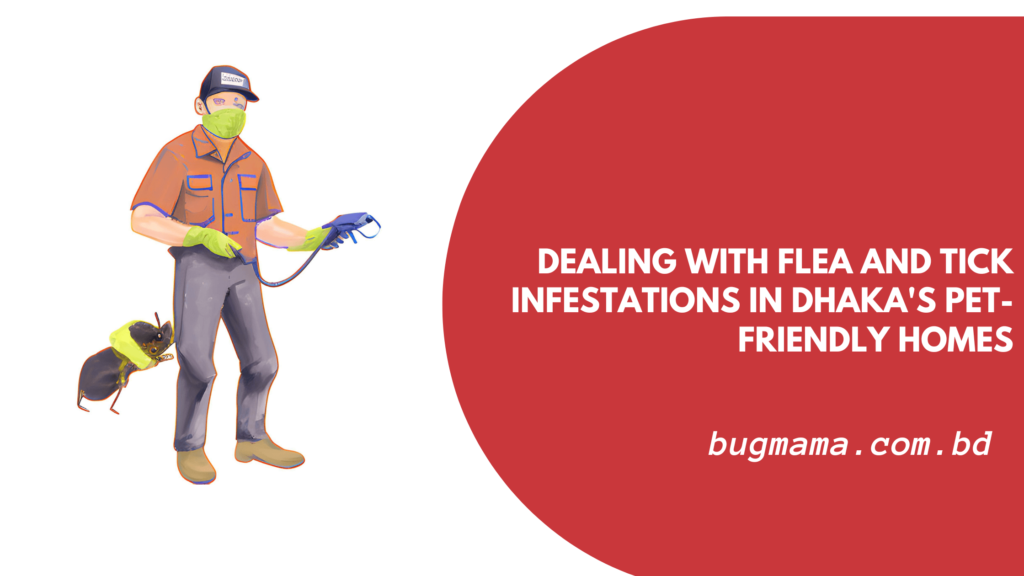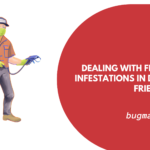
Living in a pet-friendly home in Dhaka comes with its joys and challenges. While our furry friends bring immense happiness, they can also inadvertently introduce unwanted guests: fleas and ticks. Dealing with flea and tick infestations requires a proactive approach to ensure the well-being of both pets and humans. In this article, we will explore effective strategies to manage and prevent these pesky pests.
Understanding Fleas and Ticks
The Flea-Friendly Environment
Fleas thrive in warm and humid environments, making Dhaka’s climate an ideal breeding ground. Their minuscule size and rapid reproduction rate make them a formidable adversary.
The Ticking Menace
Ticks are often found in outdoor spaces and can latch onto pets during walks or playtime. These blood-sucking parasites not only cause discomfort but also transmit diseases.
Signs of Infestation
Fleas and ticks leave telltale signs that pet owners should be vigilant about:
Scratching and Irritation
Constant scratching, licking, or biting of the skin can indicate a flea or tick problem.
Visible Pests
Spotting fleas or ticks in your pet’s fur or on furniture is a clear sign of infestation.
Redness and Rashes
Allergic reactions to flea and tick bites can lead to redness, rashes, or even secondary skin infections.
Battling the Infestation
Grooming and Bathing
Regular grooming and bathing routines can significantly reduce the risk of infestations. Use pet-friendly shampoos and consult a veterinarian for advice on proper grooming techniques.
Pest-Repellent Products
Invest in vet-recommended flea and tick preventives such as collars, topical treatments, and oral medications.
Cleaning and Vacuuming
Thoroughly clean and vacuum your home, including carpets, upholstery, and pet bedding. Dispose of the vacuum bag properly to prevent re-infestation.
Prevention Measures
Maintain a Clean Environment
Regularly clean your home, wash pet bedding, and vacuum carpets to minimize the chances of flea and tick eggs hatching.
Yard Maintenance
Keep your yard well-maintained by trimming grass, clearing debris, and creating a barrier between your home and potential tick habitats.
Regular Vet Checkups
Scheduled visits to the veterinarian are essential. They can recommend preventive measures and perform checks for any signs of infestation.
Natural Remedies
Diatomaceous Earth
This natural powder dehydrates and kills fleas and ticks upon contact. Sprinkle it in pet resting areas but ensure your pet doesn’t inhale it.
Essential Oils
Certain essential oils like lavender, eucalyptus, and cedarwood can act as natural repellents. Dilute properly and consult a vet before use.
Conclusion
Living in a pet-friendly home in Dhaka is a delightful experience, but it requires responsible pest management. By understanding, preventing, and combating flea and tick infestations, we can ensure a safe and healthy environment for our beloved pets and ourselves.
FAQs
Can fleas and ticks transmit diseases to humans?
Yes, fleas and ticks can transmit diseases such as Lyme disease and typhus to humans through their bites.
Are over-the-counter pest preventives effective?
Over-the-counter pest preventives can be effective to some extent, but it’s best to consult a veterinarian for personalized recommendations.
Can I use essential oils directly on my pet’s skin?
No, essential oils should be diluted before use on pets, and it’s advisable to consult a veterinarian before doing so.
How often should I groom my pet to prevent infestations?
Regular grooming, about once a week, can help in preventing infestations and maintaining your pet’s hygiene.
What’s the significance of maintaining a clean yard?
A clean yard reduces the likelihood of ticks and fleas breeding in outdoor spaces, preventing them from infesting your home.
